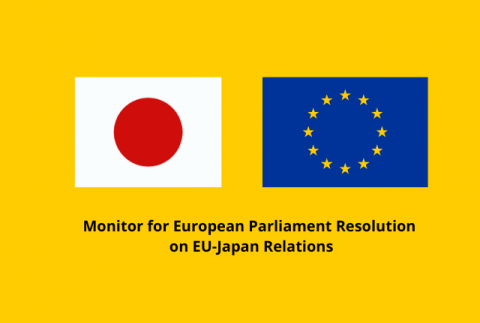Monitor for European Parliament Resolution on EU-Japan Relations
February 9, 2024

Concerning EU-Japan relations, the Committee on Foreign Affairs adopted the report by Reinhard Bütikofer with the aim to consider the status quo of its relations, including strategic partnership agreement, cooperation between people, mutual social interests, and connectivity. Section 10 of its report underscores the importance of cooperation to address issues around gender equality, women’s rights, health policies, and the rest. Also, it touches upon human rights issues existed in Japan as follows:
- “…. emphasises the human rights dialogue, where the EU and Japan can discuss, for example, the death penalty, which still exists in Japan and which the EU opposes fundamentally, and other human rights issues of mutual interest; values mutual exchange about efforts to eliminate discrimination against Sinti, Buraku or other minorities; calls on the Commission to fund more Japan-related research to foster European Japan competency; proposes the creation of an EU-Japan young leaders forum on global partnership in the pursuit of the Sustainable Development Goals; reiterates its concerns about parental child abduction; welcomes the Japanese Government’s Guidelines on Respecting Human Rights in Responsible Supply Chains of 2022; welcomes, in this context, Japan’s ratification of ILO Convention No 105 on Forced Labour in 2022; hopes that Japan will ratify major missing conventions and that it can adopt legislation equivalent to the EU’s proposed corporate sustainability due diligence directive in 2024….”
It was the first time that Buraku issues, even the term ‘Buraku’, was brought up. The word ‘Buraku’ originally means community or village, yet it has come to imply the areas where descendants of outcasts have historically resided. Those who lived in Buraku were called Burakumin or Buraku people. Over decades, the stigmatization towards Buraku, which is primarily determined by one’s occupation and family history, has expanded to include a person’s address. Until now, many cases of discrimination against Burakumin have been reported in relation to employment and marriage. More detailed information on Buraku issues can be found here.




